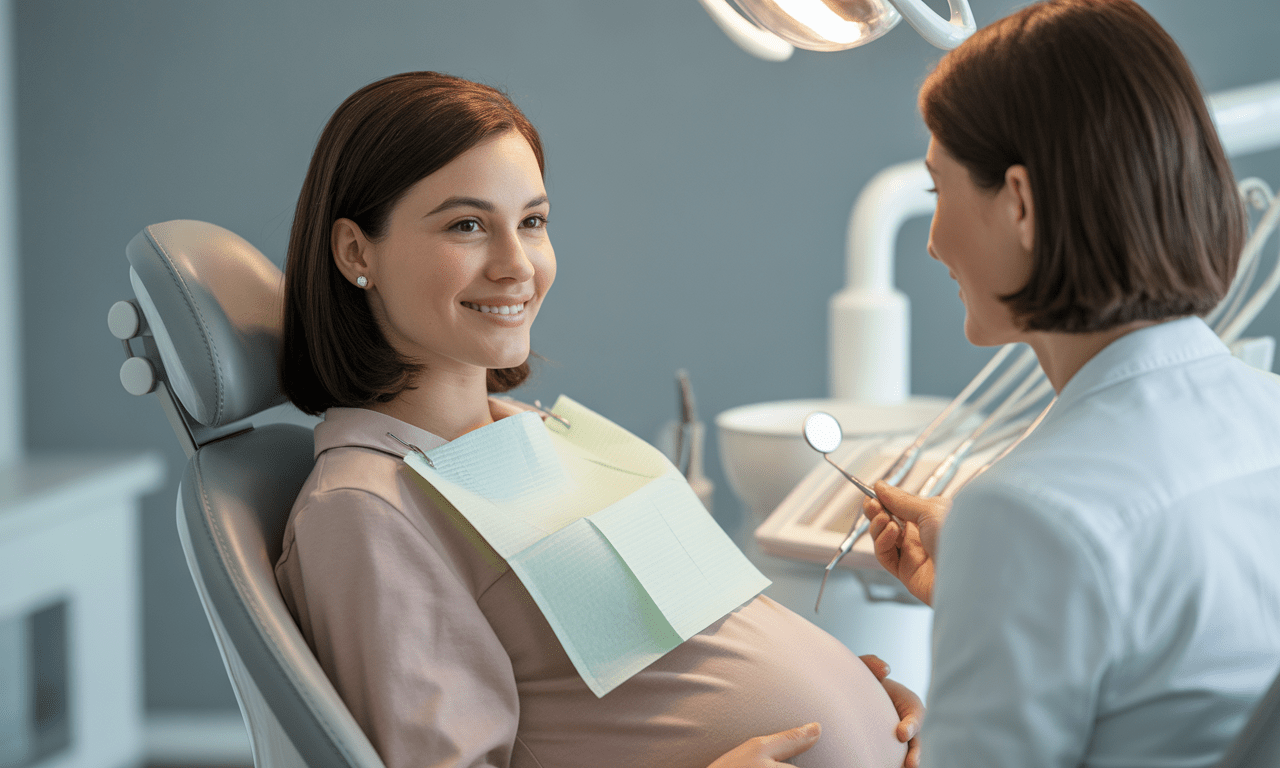
Pregnancy brings many changes to the body—and your mouth is no exception. Hormonal shifts during this time can increase the risk of oral health problems like gum disease, cavities, and even tooth loss if left unaddressed. Understanding these changes empowers expectant mothers to take proactive steps to safeguard their dental health.
TLDR: Quick Guide
- Hormonal changes increase gum sensitivity and inflammation.
- Pregnancy gingivitis affects up to 70% of pregnant women.
- Risk of cavities rises due to cravings, morning sickness, and dry mouth.
- Regular dental visits are safe and recommended.
- Maintain daily brushing, flossing, and a balanced diet.
Hormonal Fluctuations and Gum Health
During pregnancy, elevated progesterone and estrogen levels increase blood flow to the gums. This can make them more reactive to plaque and bacteria, often resulting in pregnancy gingivitis—a condition marked by red, swollen, and bleeding gums. Left untreated, it can progress to more severe periodontal disease.
Increased Risk of Cavities
Many pregnant women experience increased snacking, sugar cravings, and acid exposure from morning sickness. These factors can weaken tooth enamel and lead to decay. Additionally, dry mouth—a common side effect during pregnancy—reduces saliva’s ability to neutralize acids and clean teeth naturally.
Pregnancy Tumors: What They Are
Some women develop small, non-cancerous growths on their gums known as pregnancy tumors or pyogenic granulomas. Though they look concerning, these typically resolve after delivery and aren’t harmful. However, they can be uncomfortable and may require professional evaluation if they interfere with eating or hygiene.
Oral Health Tips for Expectant Mothers
Continue brushing twice daily with a fluoride toothpaste and flossing once a day. Use an antimicrobial mouthwash if advised by your dentist. After morning sickness, rinse with water and wait 30 minutes before brushing to avoid damaging enamel softened by stomach acid. Stay hydrated and chew sugar-free gum to combat dry mouth.
Dental Visits Are Safe During Pregnancy
Routine dental cleanings and checkups are not only safe—they’re highly recommended during pregnancy. The second trimester is generally the best time for any necessary dental work. Be sure to inform your dentist that you’re pregnant, and share a list of any medications or supplements you’re taking.
Key Takeaways
- Hormonal changes can lead to gum inflammation and bleeding.
- Morning sickness and cravings raise the risk of cavities.
- Pregnancy tumors are harmless but should be monitored.
- Dental cleanings are safe and beneficial during pregnancy.
- Daily oral hygiene and hydration are critical for prevention.
FAQs
Can I get dental treatment during pregnancy?
Yes. Cleanings and most non-emergency treatments are safe, especially in the second trimester.
What is pregnancy gingivitis?
It’s gum inflammation caused by hormonal changes during pregnancy. It can lead to swelling, bleeding, and tenderness.
Will pregnancy damage my teeth?
Not directly—but increased risk of decay and gum disease can cause problems without proper care.
Are x-rays safe during pregnancy?
Routine x-rays are typically postponed, but emergency x-rays are safe with proper shielding.
How can I protect my oral health while pregnant?
Brush and floss daily, stay hydrated, visit your dentist regularly, and rinse after vomiting to protect enamel.
